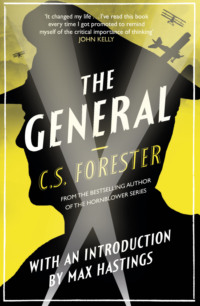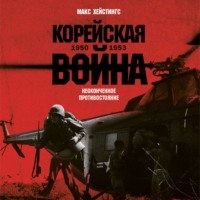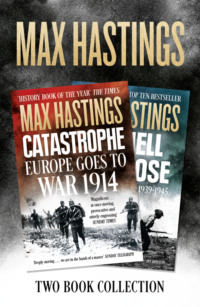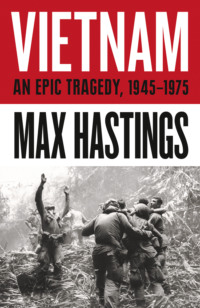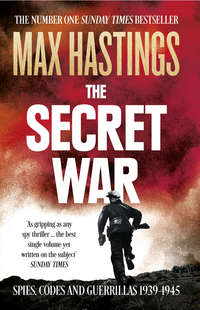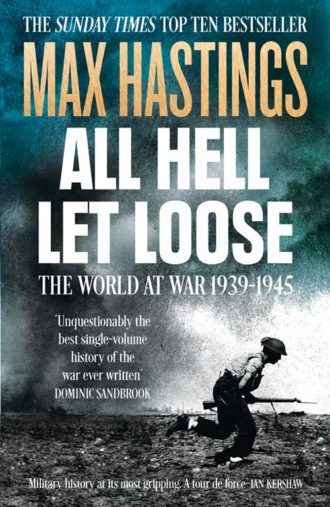
Полная версия
All Hell Let Loose: The World at War 1939-1945
In March 1939, the British and French governments gave guarantees, formalised in subsequent treaties, that in the event of German aggression against Poland, they would fight. If the worst happened, France promised the military leadership in Warsaw that its army would attack Hitler’s Siegfried Line within thirteen days of mobilisation. Britain pledged an immediate bomber offensive against Germany. Both powers’ assurances reflected cynicism, for neither had the smallest intention of fulfilling them: the guarantees were designed to deter Hitler, rather than to provide credible military assistance to Poland. They were gestures without substance, yet the Poles chose to believe them.
If Stalin was not Hitler’s co-belligerent, Moscow’s deal with Berlin made him the co-beneficiary of Nazi aggression. From 23 August onwards, the world saw Germany and the Soviet Union acting in concert, twin faces of totalitarianism. Because of the manner in which the global struggle ended in 1945, with Russia in the Allied camp, some historians have accepted the post-war Soviet Union’s classification of itself as a neutral power until 1941. This is mistaken. Though Stalin feared Hitler and expected eventually to have to fight him, in 1939 he made a historic decision to acquiesce in German aggression, in return for Nazi support for Moscow’s own programme of territorial aggrandisement. Whatever excuses the Soviet leader later offered, and although his armies never fought in partnership with the Wehrmacht, the Nazi–Soviet Pact established a collaboration which persisted until Hitler revealed his true purposes in Operation Barbarossa.
The Moscow non-aggression agreement, together with the subsequent 28 September Treaty of Friendship, Cooperation and Demarcation, committed the world’s two principal tyrants to endorse each other’s ambitions and forswear mutual hostilities in favour of aggrandisement elsewhere. Stalin indulged Hitler’s expansionist policies in the west, and gave Germany important material aid – oil, corn and mineral products. The Nazis, however insincerely, conceded a free hand in the east to the Soviets, whose objectives included eastern Finland and the Baltic states in addition to a large share of Poland’s carcass.
Hitler intended the Second World War to start on 26 August, only three days after the Nazi–Soviet Pact was signed. On the 25th, however, while ordering mobilisation to continue, he postponed the invasion of Poland: he was shocked to discover both that Mussolini was unwilling immediately to fight beside him, and that diplomatic communications suggested Britain and France were serious about honouring their guarantees to Warsaw. Three million men, 400,000 horses and 200,000 vehicles, and 5,000 trains advanced towards the Polish frontier while a last flurry of futile exchanges took place between Berlin, London and Paris. At last, on 30 August, Hitler gave the attack order. At 2000 next evening, the curtain rose on the first, appropriately sordid, act of the conflict. Sturmbannführer Alfred Naujocks of the German Sicherheitsdienst (security service) led a party dressed in Polish uniforms, and including a dozen convicted criminals dismissively codenamed ‘Konserwen’ – ‘tin cans’ – in a mock assault on the German radio station at Gleiwitz in Upper Silesia. Shots were fired; Polish patriotic slogans were broadcast across the airwaves; then the ‘attackers’ withdrew. SS machine-gunners killed the ‘tin cans’, whose bloodstained corpses were arranged for display to foreign correspondents as evidence of Polish aggression.
At 0200 on 1 September, the Wehrmacht’s 1st Mounted Regiment was among scores roused in its bivouacs by a bugle call – some German units as well as many Polish ones rode horses to battle. The squadrons saddled, mounted, and began to move towards their start line alongside clattering columns of armour, trucks and guns. The order was given: ‘Muzzle caps off! Load! Safety catches on!’ At 0440, the big guns of the old German battleship Schleswig-Holstein, anchored in Danzig harbour for a ‘goodwill visit’, opened fire on the Polish fort at Westerplatte. An hour later, German soldiers tore down crossing poles on the western frontier, opening the way for leading elements of the invasion force to pour forward into Poland. One of its commanders, Gen. Heinz Guderian, soon found himself passing his family’s ancestral estate at Chelmno, where he had been born when it formed part of pre-Versailles Germany. Among his soldiers, twenty-three-year-old Lt. Wilhelm Pruller expressed the euphoria that suffused the army: ‘It’s a wonderful feeling now, to be a German…We’ve crossed the border. Deutschland, Deutschland über alles! The German Wehrmacht is marching! If we look back, or in front of us, or left or right, everywhere the motorised Wehrmacht!’
The Western Allies, heartened by knowledge that Poland boasted the fourth largest army in Europe, anticipated a struggle lasting some months. The defenders deployed 1.3 million men against 1.5 million Germans, with thirty-seven divisions on each side. But the Wehrmacht was far better equipped, having 3,600 armoured vehicles against 750 Polish, 1,929 modern planes against nine hundred obsolete ones. The Polish army had been progressively deploying since March, but had held back from full mobilisation in response to Anglo-French pleas to avoid provoking Hitler. Thus, on 1 September, the defenders were surprised. A Polish diplomat wrote of his people’s attitude: ‘They were united in the will to resist, but without any clear idea about the kind of resistance to be offered, apart from a lot of loose talk about volunteering as “human torpedoes”.’
Ephrahim Bleichman, a sixteen-year-old Jew living in Kamionka, was among thousands of local inhabitants summoned into the town square to be addressed by the mayor: ‘We sang a Polish hymn declaring that Poland was not yet lost, and another promising that no German would spit in our faces.’ Piotr Tarczy


An air force instructor, Witold Urbanowitz, was conducting a mock dogfight with a pupil in the sky over D

At 1700 near the village of Krojanty, Polish Uhlan cavalrymen received an order to counterattack, to cover the retreat of neighbouring infantry. As they formed line and drew sabres, the adjutant Captain Godlewski suggested that they should advance on foot. ‘Young man,’ the regimental commander, Colonel Mastalerz, responded testily, ‘I’m quite aware what it is like to carry out an impossible order.’ Bent low over the necks of their horses, 250 men charged across an open field. German infantrymen fled from their path, but beyond them stood armoured cars, whose machine-guns ravaged the Uhlans. Scores of horses crashed to the earth, while others raced away riderless. Within minutes half the attackers were dead, including Colonel Mastalerz. The survivors fell back in confusion, flotsam of an earlier age.
France’s high command had urged the Poles to concentrate their forces behind the three big rivers in the centre of their country, but the Warsaw government deemed it essential instead to defend its entire nine-hundred-mile frontier with Germany, not least because most Polish industry lay in the west; some divisions thus became responsible for fronts of eighteen miles, when their strengths – around 15,000 men – scarcely sufficed for three or four. The three-pronged German assault, from north, south and west, drove deep into the country in the face of ineffectual resistance, leaving pockets of defenders isolated. Luftwaffe aircraft gave close support to the panzers, and also launched devastating air raids on Warsaw, Łód


Polish troops and civilians were strafed and bombed with ruthless impartiality, though some victims took time to recognise the gravity of the threat. After the first wave of attacks Virgilia, American-born wife of Polish nobleman Prince Paul Sapieha, told her household reassuringly: ‘You see: these bombs aren’t so bad. Their bark is worse than their bite.’ When two bombs fell in the park of the Smorczewski family’s stately home at Tarnogóra on the night of 1 September, the young sons of the house, Ralph and Mark, were hastily dragged from their beds by their mother and rushed outside to hide in a wood with other young refugees. ‘After recovering from the initial shock,’ Ralph wrote later, ‘we looked at each other and fell into a fit of unrestrained giggles. What a strange sight we were: a motley collection of youths, some in pyjamas, others with coats thrown over their underwear, standing aimlessly under the trees, playing with gas masks. We decided to go home.’
Soon, however, there was no more giggling: the people of Poland were obliged to recognise the devastating power of the Luftwaffe. ‘I was awakened by the wail of sirens and sound of explosions,’ wrote diplomat Adam Kruczkiewicz in Warsaw. ‘Outside I saw German planes flying at incredibly low level and throwing bombs at their ease. There was some desultory machine-gun fire from the tops of a few buildings, but no Polish fliers…The city was stunned by the almost complete lack of air defence. They felt bitterly disappointed.’ The town of Łuck belied its name: early one morning a dozen German bombs fell on it, killing scores of people, most of them children walking to school. Impotent victims called the cloudless skies of those September days ‘the curse of Poland’. Pilot B.J. Solak wrote: ‘The stench of burning and a brown veil of smoke filled all the air around our town.’ After hiding his unarmed plane beneath some trees, Solak was driving home when he met a peasant on the road, ‘leading a horse whose hip was a blanket of congealed blood. Its head was touching the dust with its nostrils, each step causing it to shudder with pain.’ The young airman asked the peasant where he was taking the stricken animal, victim of a Stuka dive-bomber. ‘To the veterinary clinic in town.’ ‘But that’s four miles more!’ A shrug: ‘I have only one horse.’
A thousand larger tragedies unfolded. As Lt. Piotr Tarczy

Thirteen-year-old George



Pilot Franciszek Kornicki went to visit a wounded comrade in a Łód

On Sunday, 3 September, Britain and France declared war on Germany, in fulfilment of their guarantees to Poland. Stalin’s alliance with Hitler caused many European communists, compliant with Moscow, to distance themselves from their nations’ stand against the Nazis. Trades unionists’ denunciations of what they branded an ‘imperialist war’ influenced attitudes in many French and British factories, shipyards and coalmines. Street graffiti appeared: ‘Stop the War: The Worker Pays’, ‘No to Capitalist War’. Independent Labour MP Aneurin Bevan, a standard-bearer of the left, hedged his bets by calling for a struggle on two fronts: against Hitler and also against British capitalism.
The secret protocols of the Nazi–Soviet Pact, delineating the parties’ territorial ambitions, were unknown in Western capitals until German archives were captured in 1945. But in September 1939, many citizens of the democracies perceived Russia and Germany alike as their foes. The novelist Evelyn Waugh’s fictional alter ego, Guy Crouchback, adopted a view shared by many European conservatives: Stalin’s deal with Hitler, ‘news that shook the politicians and young poets of a dozen capital cities, brought deep peace to one English heart…The enemy at last was plain in view, huge and hateful, all disguise cast off. It was the Modern Age in arms.’ A few politicians aspired to separate Russia and Germany, to seek the support of Stalin to defeat the greater evil of Hitler. Until June 1941, however, such a prospect seemed remote: the two dictatorships were viewed as common enemies of the democracies.
Hitler did not anticipate the British and French declarations of war. Their acquiescence in his 1938 seizure of Czechoslovakia, together with the impossibility of direct Anglo-French military succour for Poland, argued a lack of both will and means to challenge him. The Führer himself quickly recovered from his initial shock, but some of his acolytes were troubled. Goering, C-in-C of the Luftwaffe, his nerve badly shaken, raged down the telephone to Germany’s foreign minister, Ribbentrop: ‘Now you’ve got your fucking war! You alone are to blame!’ Hitler had striven to forge a German warrior society committed to martial glory, with notable success among the young. But older people displayed far less enthusiasm in 1939 than they had done in 1914, recalling the horrors of the previous conflict, and their own defeat. ‘This war has a ghostly unreality,’ wrote Count Helmuth von Moltke, an Abwehr intelligence officer but an implacable opponent of Hitler. ‘The people don’t support it…[They] are apathetic. It’s like a danse macabre performed on the stage by persons unknown.’
American CBS correspondent William Shirer reported from Hitler’s capital on 3 September: ‘There is no excitement here…no hurrahs, no wild cheering, no throwing of flowers…It is a far grimmer German people that we see here tonight than we saw last night or the day before.’ As Alexander Stahlberg passed through Stettin with his army unit en route to the Polish border, he echoed Shirer’s view: ‘None of the brave mood of August 1914, no cheers, no flowers.’ The Austrian writer Stefan Zweig readily explained this: ‘They did not feel the same because the world in 1939 was not as childishly naïve and gullible as in 1914…This almost religious faith in the honesty or at least the ability of your own government had disappeared throughout the whole of Europe.’
But many Germans echoed the sentiments of Fritz Muehlebach, a Nazi Party official: ‘I regarded England’s and France’s interference…as nothing but a formality…As soon as they realised the utter hopelessness of Polish resistance and the vast superiority of German arms they would begin to see that we had always been in the right and it was quite senseless to meddle…It was only as a result of something that wasn’t their business that the war had ever started. If Poland had been alone she would certainly have given in quietly.’
The Allied nations hoped that the mere gesture of declaring war would ‘call Hitler’s bluff’, precipitating his overthrow by his own people and a peace settlement without a catastrophic clash of arms in western Europe. Selfishness dominated the response of Britain and France to the unfolding Polish tragedy. France’s C-in-C, Gen. Maurice Gamelin, had told his British counterpart back in July: ‘We have every interest in the conflict beginning in the East and only generalising little by little. That way we shall enjoy the time we need to mobilise the totality of the Franco-British forces.’ Tory MP Cuthbert Headlam wrote petulantly in his diary on 2 September that the Poles ‘have only themselves to blame for what is coming to them now’.
In Britain on 3 September, the air-raid alarm which sounded within minutes of prime minister Neville Chamberlain’s broadcast announcement of war aroused mixed emotions. ‘Mother was very flustered,’ wrote nineteen-year-old London student J.R. Frier. ‘Several women in the neighbourhood fainted, and many ran into the road immediately. Some remarks – “Don’t go into the shelter till you hear the guns fire” – “The balloons aren’t even up yet” – “The swine, he must have sent his planes over before the time limit was up.”’ After the all-clear, ‘within minutes everyone was at their doors, talking quickly to each other in nervous voices. More talk about Hitler and revolutions in Germany…Most peculiar thing experienced today was desire for something to happen – to see aeroplanes coming over, and defences in action. I don’t really want to see bombs dropping and people killed, but somehow, as we are at war, I want it to buck up and start. At this rate, it will carry on for God knows how long.’ Impatience about the likely duration of the struggle proved an abiding popular sentiment.
In remote African colonies, some young men fled into the bush on hearing that a war had started: they feared that their British rulers would repeat First World War practice by conscripting them for compulsory labour service – as indeed later happened. A Kenyan named Josiah Mariuki recorded ‘an ominous rumour that Hitler was coming to kill us all, and many people went fearfully down to the rivers and dug holes in the bank to hide from the troops’. The leaders of Britain’s armed forces recognised their unpreparedness for battle, but some young professional soldiers were sufficiently naïve merely to welcome the prospect of action and promotion. ‘The effect was one of exhilaration and excitement,’ wrote John Lewis of the Cameronians. ‘Hitler was a ludicrous figure, and Pathé newsreels of goose-stepping German soldiers were a cause of hilarious merriment…They were pretty good at dive-bombing defenceless Spanish villages, but that was about all. Most of their tanks were dummies made of cardboard. We had beaten a much more powerful Germany twenty years before. We were the greatest empire in the world.’
Few people were as clear-thinking as Lt. David Fraser of the Grenadier Guards, who observed harshly: ‘The mental approach of the British to hostilities was distinguished by their prime faults – slackness of mind and wishful thinking…The people of democracies need to believe that good is opposed to evil – hence the spirit of crusade. All this, with its attempted arousal of vigorous moral and ideological passions, tends to work against that cool concept of war as [an] extension of policy defined by Clausewitz, an exercise with finite, attainable objectives.’
Many British airmen anticipated their own likely fate. Pilot Officer Donald Davis wrote: ‘It was a marvellous autumn day as I drove up past the Wittenham Clumps and Chiltern Hills I knew so well, and I remember thinking that I should be dead in three weeks. I stopped to view the scene and ponder for a few minutes. [I decided that] were I to be faced by the same decisions I should still have decided to fly and join the RAF if I could.’ To Davis’s generation around the world, the privilege of being granted access to the sky fulfilled a supreme romantic vision, for which many young men were content to make payment by risking their lives.
At Westminster, with monumental condescension a government minister told the Polish ambassador, ‘How lucky you are! Who would have thought, six months ago, that you would have Britain on your side as an ally?’ In Poland, news of the British and French declarations of war prompted a surge of hope, boosted by the new allies’ extravagant rhetoric. Varsovians embraced in the street, danced, cried, hooted car horns. A crowd gathered outside the British Embassy on Aleje Ujadowskie, cheering, singing, stumbling through a version of ‘God Save the King’. The ambassador, Sir Howard Kennard, shouted from the balcony: ‘Long live Poland! We shall fight side by side against aggression and injustice!’
These tumultuous scenes were repeated at the French Embassy, where a crowd sang the Marseillaise. In Warsaw that night, a government bulletin announced triumphantly: ‘Polish cavalry units have thrust through the armoured German lines and are now in East Prussia.’ Across Europe, some enemies of Nazism embraced brief delusions. Mihail Sebastian was a thirty-one-year-old Romanian writer, and a Jew. On 4 September, after hearing news of the British and French declarations of war, he was naïvely astonished that they did not immediately attack in the west. ‘Are they still waiting for something? Is it possible (as some say) that Hitler will immediately fall and be replaced by a military government, which will then settle for peace? Could there be radical changes in Italy? What will Russia do? What’s happening to the Axis, about which there is suddenly silence in both Rome and Berlin? A thousand questions that leave you gasping for breath.’ Amid his own mental turmoil, Sebastian sought relief first in reading Dostoevsky, then Thomas de Quincey in English.


